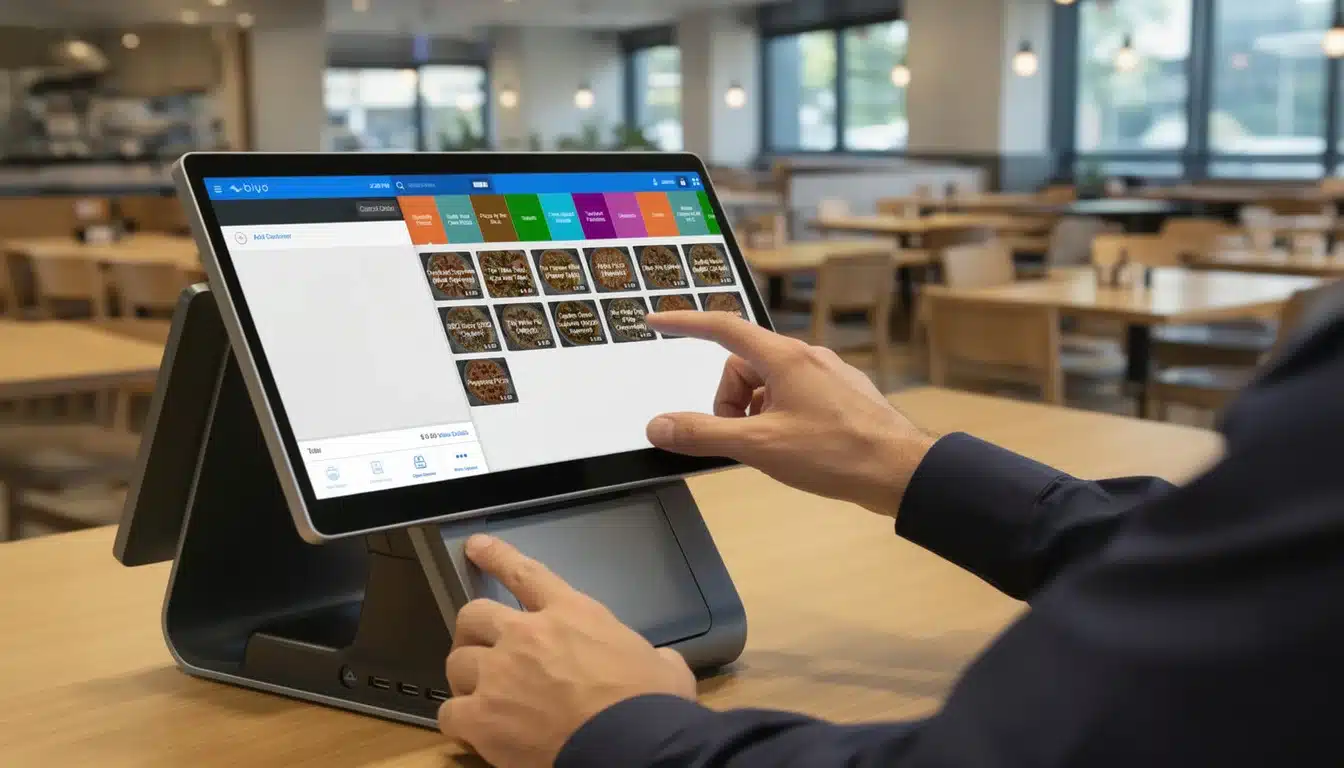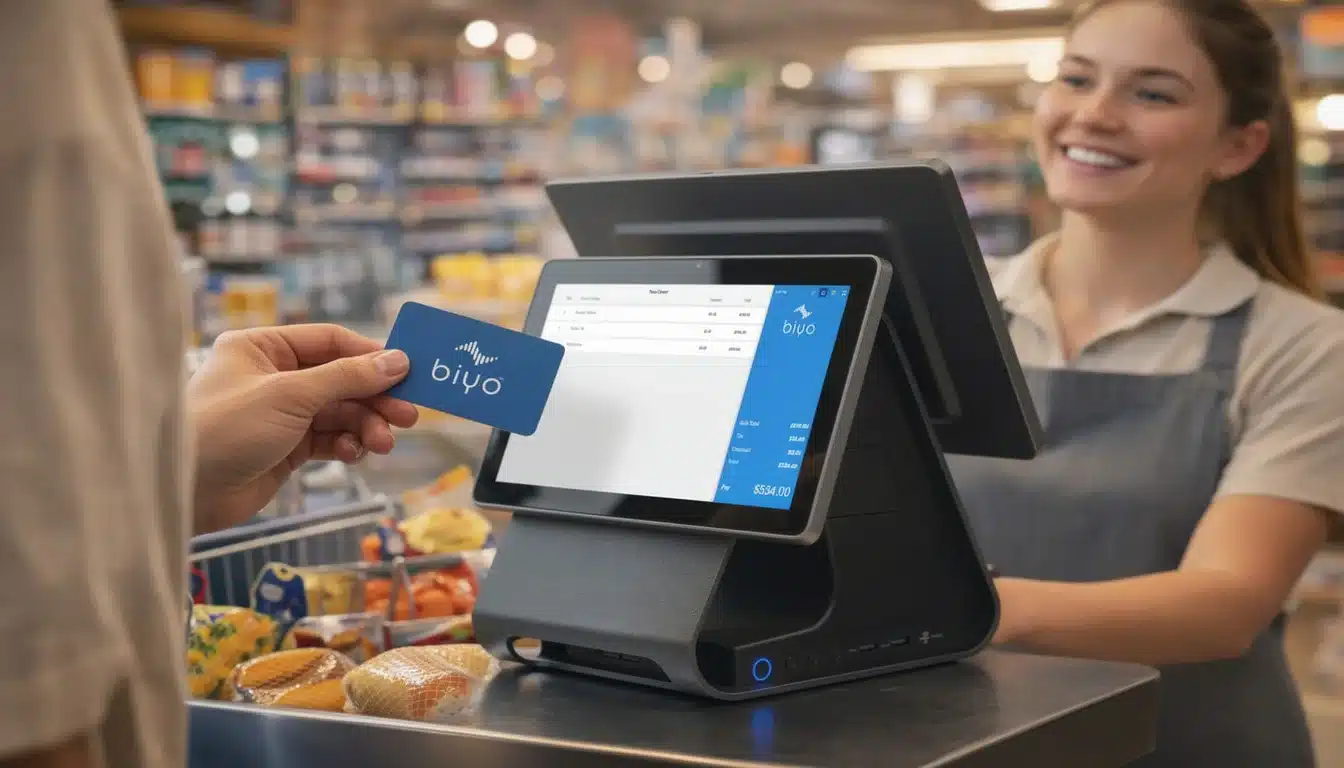Securing a food handler permit in Alabama is essential for anyone working in the food service industry. Whether you’re a restaurant cook, café barista, food truck operator, or grocery store clerk, proper certification ensures compliance with the Alabama Department of Public Health and helps prevent foodborne illnesses. This in-depth guide will walk you through every step of obtaining, maintaining, and renewing your permit, while explaining how to meet all legal requirements and promote food safety in your workplace.
Table of Contents
- Why a Food Handler Permit in Alabama Is Important
- Eligibility and Requirements for a Food Handler Permit
- How to Apply for a Food Handler Permit in Alabama
- Food Handler Training and Certification Options
- Renewal and Compliance with Alabama Health Department
- Biyo POS: Supporting Safe and Compliant Food Operations
- Frequently Asked Questions
Why a Food Handler Permit in Alabama Is Important
Having a valid food handler permit in Alabama is not just a regulatory obligation; it’s a commitment to food safety, customer trust, and public health. This certification ensures that all food service employees understand the fundamentals of hygiene, foodborne illness prevention, and safe food handling practices. Below are key reasons this permit is vital for every food professional in the state.
Protecting Consumers from Foodborne Illnesses
Foodborne illnesses are among the most preventable public health problems, and Alabama takes this issue seriously. A food handler permit Alabama program teaches workers how to identify risks, such as cross-contamination or improper storage temperatures, which can lead to bacteria growth. By learning how to wash hands properly, clean surfaces, and store ingredients at safe temperatures, employees help stop diseases before they start.
When restaurants follow certified food safety procedures, they reduce the likelihood of outbreaks caused by salmonella, norovirus, or E. coli. Customers are also more likely to trust and return to establishments where staff are visibly trained and compliant with state standards. This builds loyalty and protects the business’s long-term reputation.
In addition, food handler training emphasizes proper cleaning routines for kitchen tools, prep tables, and utensils. These practices help prevent contamination and ensure every meal served meets Alabama’s health standards for food safety and quality.
Complying with Alabama Health Department Regulations
The Alabama Department of Public Health (ADPH) enforces strict food safety laws to ensure all food establishments follow the state’s Food Code. Every employee who handles food must complete a certified training program and obtain a valid food handler permit Alabama. This requirement applies to both small cafés and large restaurant chains across the state.
Health inspectors regularly review employee certifications during routine inspections. A missing or expired permit can lead to citations or even temporary closure until compliance is restored. Therefore, staying up to date with ADPH regulations is critical for all food business operators.
For example, when a health inspector visits a restaurant in Birmingham or Montgomery, they may request immediate proof of food handler certifications for all staff. Having organized, valid permits demonstrates professionalism and compliance during these checks.
Minimizing Legal Liability for Food Businesses
Maintaining a food handler permit in Alabama for every employee is also a smart legal safeguard. In the event of a foodborne illness complaint or lawsuit, proof that staff were trained under state-approved programs shows that the business took reasonable measures to ensure food safety. This documentation can help reduce liability and protect the company’s reputation.
Insurance providers often require proof of compliance with state sanitation laws before approving coverage or claims. Keeping valid food handler records ensures your business remains eligible for insurance benefits and avoids unnecessary disputes. It also helps demonstrate diligence during health investigations or audits.
In essence, compliance protects both the customer and the establishment. Regularly renewing and maintaining your food handler certifications ensures your business remains legally sound and operationally reliable under Alabama’s health laws.

Eligibility and Requirements for a Food Handler Permit
Understanding the eligibility criteria for obtaining a food handler permit Alabama helps applicants prepare ahead and avoid common delays. These requirements ensure that all workers who handle food are properly trained, identifiable, and qualified to maintain public health standards.
Who Is Required to Have a Food Handler Permit in Alabama
Anyone involved in preparing, storing, or serving food to the public must hold a valid food handler permit. This includes cooks, dishwashers, cashiers who handle unpackaged food, and even food truck workers. The goal is to ensure that everyone in contact with food follows consistent hygiene practices.
For instance, if you’re working at a local diner or catering business, you’ll need to complete food safety certification before handling ingredients. Employers are responsible for verifying that new hires complete training within the required timeframe after starting employment.
Supervisors or managers may also need additional certifications, such as the Food Protection Manager certification, to oversee broader operations and ensure full regulatory compliance at the management level.
Minimum Age and Documentation Requirements
In most counties, applicants must be at least 16 years old to register for a food handler permit Alabama training program. However, younger workers may participate if they work under direct supervision. All applicants must provide valid identification—such as a driver’s license or school ID—during registration and exam verification.
Employers often keep copies of employee certificates in their HR or compliance records. This practice not only satisfies inspection requirements but also makes renewal tracking easier. Keeping organized documentation ensures a smooth workflow during health inspections.
Some counties may have extra requirements based on local ordinances. Always check with your regional health department to confirm any specific rules or additional forms that may apply in your area.
Health and Conduct Standards for Food Handlers
Applicants for a food handler permit must meet health standards ensuring they do not pose a risk to public health. Employees are expected to report any illnesses that could compromise food safety, such as hepatitis A or gastrointestinal infections. Employers should reassign sick workers to non-food-handling duties until they are cleared to return.
Maintaining clean uniforms, proper hand hygiene, and minimal jewelry is also part of professional conduct in the food industry. These small but important habits help uphold public trust and prevent accidental contamination.
Any violation of food safety practices—like improper glove use or failure to wash hands after handling raw meat—can result in corrective actions or even suspension of the permit. Compliance is therefore not a one-time task but a continuous commitment to health and responsibility.
How to Apply for a Food Handler Permit in Alabama
The process of obtaining your food handler permit in Alabama is simple once you understand the required steps. Each stage—training, testing, and application submission—builds toward compliance with the Alabama health department’s legal requirements.
Selecting a State-Approved Training Provider
The first step is choosing an ADPH-approved training provider. These can be local community colleges, county health offices, or accredited online platforms. Online courses are especially convenient for part-time employees who need flexible scheduling to complete their training.
Approved courses typically cover sanitation, cross-contamination prevention, time and temperature control, and hygiene practices. Many programs include interactive modules and real-world case studies to reinforce understanding. Always confirm that the provider is officially approved by the Alabama Department of Public Health to ensure your certificate will be valid statewide.
Completing a verified program ensures your food handler card will pass inspection checks and meet all current food code requirements under Alabama law.
Completing the Application and Paying Fees
After successfully finishing the training, you’ll receive a completion certificate. You can then submit your food handler application to your local health department or through the course provider’s online portal. Most counties charge between $10 and $20 for the official permit card.
During the application, you may need to provide your personal details, course completion proof, and payment receipt. Keeping both digital and paper copies of these documents is recommended for employer verification and renewal reminders.
Always verify submission details for your county. For example, Jefferson County may process applications slightly differently than Mobile County, so checking the local guidelines prevents delays or rejections.
Receiving and Displaying Your Food Handler Card
Once approved, you’ll receive your official food handler permit Alabama card, usually in a digital format or laminated version. It must be displayed at your workplace or kept readily available for inspection. Many establishments require employees to wear the card or keep a copy behind the counter.
Displaying the permit helps customers feel confident about your business’s food safety standards. It also allows inspectors to quickly confirm compliance during health visits. Employers should store additional copies of all employee certifications in a designated binder or online record system.
Keep in mind that this card has an expiration date, typically valid for two or three years. Renewal is necessary to maintain compliance and continue working in food service legally.
Food Handler Training and Certification Options
Completing the right training program is the foundation for obtaining a food handler permit in Alabama. These courses equip workers with knowledge and skills needed to maintain food safety, prevent contamination, and comply with state sanitation standards.
State-Approved Online Courses
Online training programs are ideal for those seeking flexibility and convenience. Workers can study at their own pace, pause lessons, and review key concepts before taking the exam. Approved platforms usually offer interactive videos and quizzes that simulate real food service situations.
Once the course is complete, the certificate is immediately available for download, making it easy to include with your permit application. Many employers reimburse workers for these courses as part of staff development or compliance budgets.
Always ensure the online provider lists Alabama under its approved jurisdictions. Using a non-approved program could invalidate your certificate during health inspections.
Hands-On Training and In-Person Classes
In-person classes offer hands-on experience and direct interaction with instructors. These sessions are often held by local health departments or culinary schools and cover practical scenarios like food thermometer usage, cleaning procedures, and allergen control.
Learning alongside peers allows participants to ask questions and share workplace experiences. This environment strengthens understanding of safe food handling in different contexts, from restaurants to mobile catering units.
Employers who train multiple staff members at once benefit from consistency in safety practices, as everyone receives the same instructions and passes the same assessment criteria.
Certification Exams and Passing Requirements
After training, applicants must pass a certification exam to earn their food handler permit Alabama. Exams typically consist of 40–60 multiple-choice questions on sanitation, hygiene, and foodborne illness prevention. A passing score of 70% or higher is usually required.
If you don’t pass on your first attempt, most programs allow retakes at little or no additional cost. Reviewing study guides and focusing on temperature control, cleaning schedules, and proper handwashing can help improve scores.
Passing the exam demonstrates a clear understanding of Alabama’s food safety laws, confirming that the holder is qualified to work in food service environments safely and responsibly.
Renewal and Compliance with Alabama Health Department
Maintaining your food handler permit in Alabama is an ongoing responsibility. Permits must be renewed periodically to ensure employees stay up-to-date with current food safety regulations and best practices.
Permit Renewal Process and Deadlines
Food handler permits usually remain valid for two to three years, depending on the county. Renewal involves retaking a short refresher course and sometimes a renewal exam. This ensures that workers remain knowledgeable about the latest health department updates and sanitation laws.
It’s best to start the renewal process at least one month before expiration. Doing so avoids gaps that could interrupt your ability to work legally. Employers should implement a tracking system to remind staff of upcoming renewal deadlines.
Renewal can be done online in most cases, making it a fast and easy process. Employees simply log into their training portal, complete the refresher lessons, and download the updated certificate.
Staying Compliant During Health Inspections
Health inspectors in Alabama perform periodic evaluations of all food establishments. During these visits, they check whether all employees have valid and up-to-date permits. Having a binder or digital folder containing staff certifications helps streamline these inspections and prevents potential penalties.
Clean kitchens, proper temperature logs, and documented employee training records demonstrate full compliance. Regular internal reviews also help managers identify potential gaps before an inspector visits.
Employers who prioritize compliance often enjoy smoother inspections, fewer violations, and higher public trust ratings for food safety excellence.
Penalties for Non-Compliance
Failure to maintain valid permits or meet hygiene standards can lead to fines, suspension, or even closure of the food business. Beyond monetary penalties, non-compliance can severely damage your reputation among customers and regulators alike.
Foodborne illness outbreaks traced to untrained workers can have devastating legal and financial consequences. Maintaining current certifications for all employees is therefore a non-negotiable responsibility for every food business in Alabama.
Regular refresher training and clear documentation of compliance procedures minimize these risks and reinforce your commitment to maintaining safe food handling practices.

Biyo POS: Supporting Safe and Compliant Food Operations
Running a food business involves managing compliance, staff training, and operational efficiency all at once. Biyo POS helps food establishments in Alabama organize their operations while staying compliant with health department regulations. With features like digital record-keeping, employee management, and automatic renewal reminders, Biyo POS ensures that your food handler certifications and training records remain accessible at all times. From tracking sales to managing multi-location compliance, Biyo POS simplifies the process so you can focus on running a safer, more profitable business. To start optimizing your operations, sign up for Biyo POS today.
Frequently Asked Questions
How long does it take to get a food handler permit in Alabama?
Most applicants complete their training and exam within two to three hours. Once you pass, your certificate is typically available instantly or within one business day, depending on the course provider.
Is online food handler certification accepted in Alabama?
Yes, Alabama accepts online food handler courses as long as they are provided by an ADPH-approved organization. Always verify that the provider is recognized before enrolling to ensure compliance.
How often do I need to renew my food handler permit?
Permits are generally valid for two to three years. Renewal includes a refresher course or exam to keep employees current with updated sanitation and food safety regulations.
What happens if my food handler permit expires?
If your permit expires, you are not legally allowed to handle food until it’s renewed. Employers are encouraged to monitor employee certification dates to prevent compliance issues during inspections.
Can I transfer my Alabama food handler permit to another state?
No, food handler permits are specific to each state’s health department regulations. If you move to another state, you must complete that state’s approved training and certification process.




